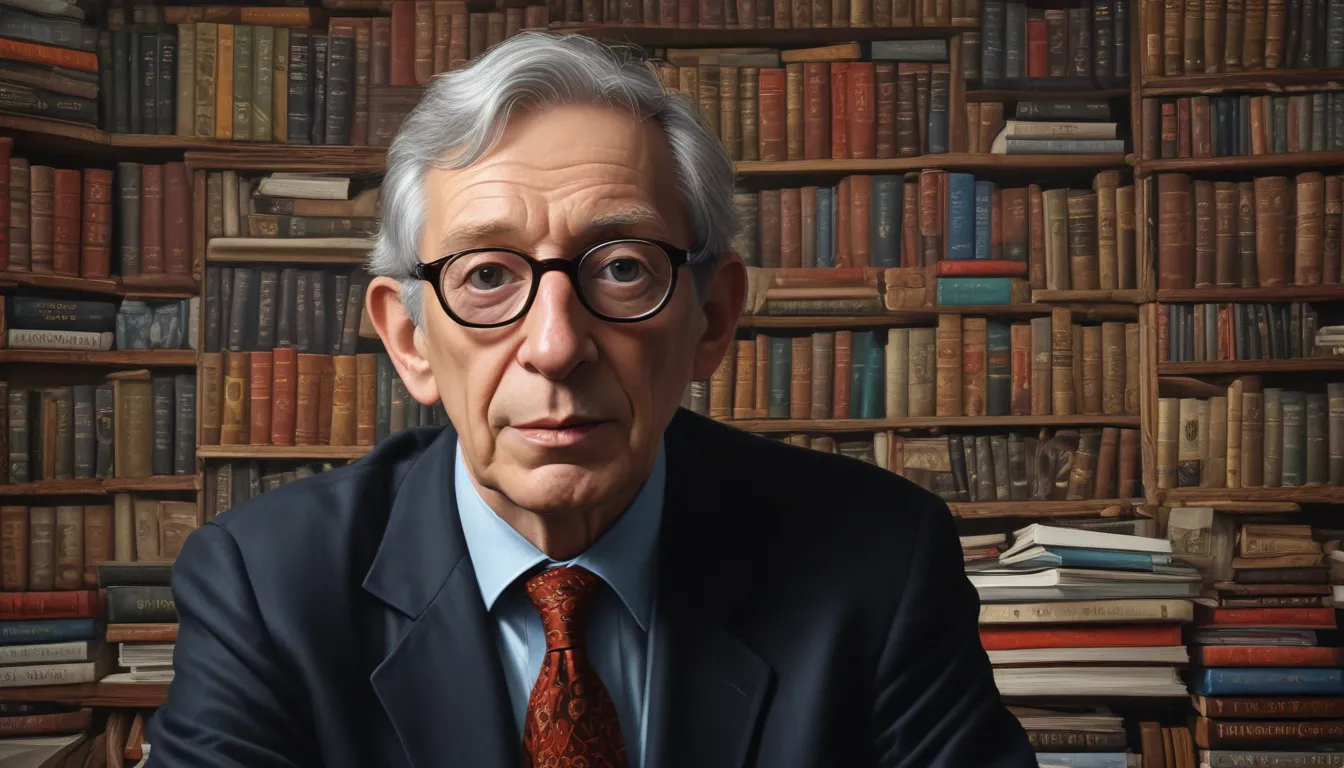The images in our articles may not match the content exactly. They are used to grab your attention, not to show the exact details in the text. The images complement the text but do not replace it.
Eric Hobsbawm, a renowned historian, has left an indelible mark on the field of social history with his insightful contributions. His life and work are shrouded in mystery, making him a figure of intrigue and fascination. In this article, we will delve into 18 enigmatic facts about Eric Hobsbawm, shedding light on his captivating personality and intellectual prowess. Join us on a journey through the lesser-known aspects of this intellectual giant, as we explore the secrets behind his monumental impact on our understanding of history and society.
Eric Hobsbawm: A Historical Icon
Eric Hobsbawm’s legacy as one of the most influential historians of the 20th century is undeniable. His groundbreaking research and Marxist perspectives continue to inspire scholars worldwide, sparking debates and reshaping the way we perceive historical events.
The Early Years of Eric Hobsbawm
Born on June 9, 1917, in Alexandria, Egypt, Eric Hobsbawm came from a Jewish family of British and Austrian descent. His upbringing in Vienna and Berlin during times of great change and political turmoil shaped his worldview and academic pursuits.
A Marxist Perspective on History
At the young age of 14, Hobsbawm joined the Communist Party, paving the way for his lifelong commitment to Marxist ideologies. His analysis of capitalism, social inequality, and class struggle influenced his academic career and scholarly contributions.
The Academic Journey of Eric Hobsbawm
After studying at the University of Cambridge, where he earned a degree in History, Hobsbawm embarked on a prolific writing career. His acclaimed books, such as “The Age of Extremes” and “The Age of Revolution,” established him as a leading figure in historical scholarship.
Contributions to Historical Understanding
Hobsbawm’s concept of the “long 19th century” and his exploration of the interconnectedness of historical events from the French Revolution to World War I challenged conventional narratives and highlighted the complexities of societal change.
The Multifaceted Scholar
Beyond his academic pursuits, Hobsbawm’s fluency in multiple languages, including English, German, French, Italian, and Spanish, allowed him to engage with a diverse range of sources and perspectives, enriching his scholarly work.
Legacy of Cultural Analysis
Recognizing the significance of popular culture as a reflection of societal values, Hobsbawm advocated for the study of cultural history. His insights into nationalism, class consciousness, and popular culture continue to influence scholarly discourse.
Enduring Influence and Recognition
Throughout his career, Hobsbawm received numerous accolades and honors for his contributions to historical scholarship. His work remains essential reading for anyone interested in understanding the complexities of modern history.
The Enigmatic Figure
While Eric Hobsbawm’s life and work continue to be subjects of academic debate, there is no denying his lasting impact on the field of history. His Marxist perspective and dedication to intellectual inquiry have cemented his legacy as a true icon in the realm of historical scholarship.
Conclusion: Embracing the Legacy of Eric Hobsbawm
In conclusion, Eric Hobsbawm’s enigmatic nature and intellectual curiosity have left a lasting imprint on our understanding of the modern world. His ability to navigate the intricate intersections of politics, culture, and society sets him apart as a unique historian whose legacy will endure for generations to come. As we reflect on his contributions and revisit his works, Eric Hobsbawm’s name will continue to evoke discussions, debates, and profound insights into the complexities of human history.
Frequently Asked Questions
Q: When was Eric Hobsbawm born?
A: Eric Hobsbawm was born on June 9, 1917.
Q: What were Eric Hobsbawm’s major areas of research?
A: Eric Hobsbawm focused primarily on labor movements, socialism, nationalism, and the impact of industrialization on society.
Q: Did Eric Hobsbawm hold any controversial views?
A: Yes, Hobsbawm’s adherence to Marxist ideology and his defense of the Soviet Union often drew criticism and controversy.
Q: What is Eric Hobsbawm’s most well-known book?
A: “The Age of Extremes: A History of the World, 1914-1991” is considered one of Hobsbawm’s seminal works.
Q: Did Eric Hobsbawm receive any notable awards or recognition?
A: Yes, Hobsbawm was awarded numerous prestigious honors, including the Balzan Prize for History in 1999.
Q: How did Eric Hobsbawm’s background influence his work?
A: Hobsbawm’s early experiences growing up in a Jewish family in early 20th century Vienna and his later involvement in left-wing politics greatly shaped his perspective and research interests.
Explore the lives of remarkable historians and delve into the captivating world of the 20th century. Uncover mind-blowing facts about those who have shaped our understanding of the past. Join us on a journey through history, where each fact contributes to a richer, more nuanced perspective on the enigmatic figures who have shaped our world. Trust in our commitment to providing engaging, reliable content as we unravel the legacies of those who continue to inspire and challenge our perceptions of the past.






